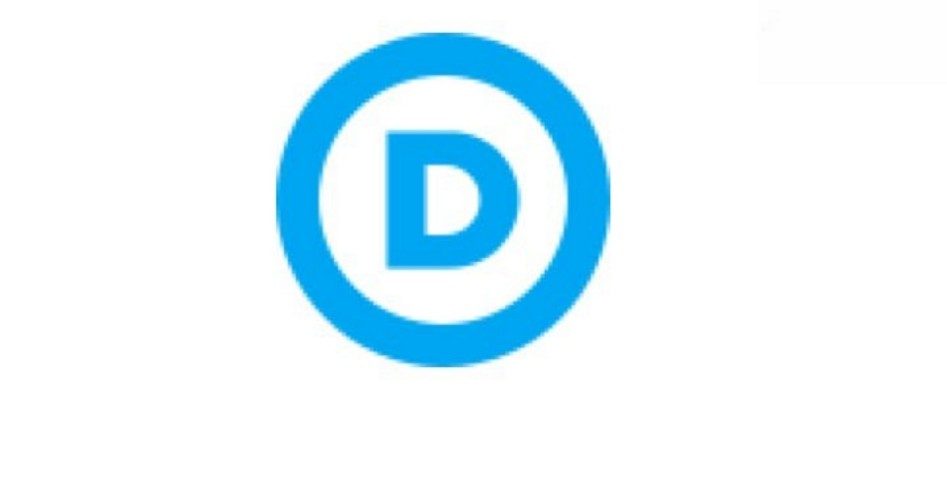
The Democratic FISA memo released Saturday stands in sharp contrast to the previous FISA memo authored by House Intelligence Committee Chairman Devin Nunes (R-Calif.) in more than just its denials of the claims of the Nunes memo. The biggest difference between the two memos is that the Nunes memo relied on facts, while the Democratic memo asserts — with emotional language — what it cannot back up with evidence.
The Democratic memo was written as a defensive reaction to the Nunes memo’s claims that the FBI and DOJ abused the FISA process in an effort to illegally spy on the Trump campaign. And whereas the Nunes memo cites specific points from the official record to back up its claims, the Democratic memo is all sizzle and no steak. Furthermore, the Democratic memo is replete with misleading statements and half-truths, if not outright lies.
For instance, the memo begins by claiming that the public release of the Nunes memo “risks public exposure of sensitive sources and methods for no legitimate purpose.” When one takes the time to unpack that, it becomes immediately apparent that every part of it is false. First, the Nunes memo was able to be released to the public without a single redaction precisely because it did not risk “public exposure” of anything “sensitive” and contained no information revealing “sources and methods.” In contrast, the Democratic memo — ostensibly released to draw attention to the alleged dangers of the Nunes memo — contains no fewer than 54 redactions — with some whole portions blacked out. Second, the phrase “for no legitimate purpose” would make sense only if House Democrats — led by Adam Schiff (D-Calif.) — believe that exposing illegal abuses of the FISA process by government agencies is not a legitimate act.
Of course, the memo claims that there was no FISA abuse to expose, stating, “FBI and DOJ officials did not ‘abuse’ the Foreign Intelligence Surveillance Act (FISA) process, omit material information, or subvert this vital tool to spy on the Trump campaign.” In a dishonest attempt to “prove” that claim, the memo states:
In fact, DOJ and the FBI would have been remiss in their duty to protect the country had they not sought a FISA warrant and repeated renewals to conduct temporary surveillance of Carter Page, someone the FBI assessed to be an agent of the Russian government. DOJ met the rigor, transparency, and evidentiarv basis needed to meet FISA’s probable cause requirement. [Emphasis in original, as the case throughout the rest of this article.]
Unfortunately for Democrats, the Nunes memo cites multiple examples of both the DOJ and FBI doing exactly what the Democratic memo authored by Schiff claims those agencies did not do. As this writer covered in an article when the Nunes memo was made public:
The memo — based on intelligence which is not publicly available, but is referenced in general terms in the memo — shows that the “FBI and DOJ obtained one initial FISA warrant targeting Carter Page and three FISA renewals from the FISC” and that in spite of legal obligations to “include information potentially favorable to the target of the FISA application that is known by the government” and the fact that the FBI and DOJ “had at least four independent opportunities before the FISC to accurately provide an accounting of the relevant facts,” the government “omitted” certain “material and relevant information.”
And:
The first point listed in the committee’s findings is related to the now-discredited “dossier” alleging that Trump was both the victim of blackmail by Russian agents and the recipient of Russian assistance in his electoral contest with Hillary Clinton. The memo points out that the “dossier” was compiled by Christopher Steele, who was paid more than $160,000 by the DNC and Clinton campaign “to obtain derogatory information on Donald Trump’s ties to Russia.” It further states, “Neither the initial application in October 2016, nor any of the renewals, disclose or reference the role of the DNC, Clinton campaign, or any party/campaign in funding Steele’s efforts, even though the political origins of the Steele dossier were then known to senior and FBI officials.”
No connections between those involved in the creation (perhaps “manufacture” would be a better word) of the “dossier” and the DNC/Clinton campaign were revealed to the court as part of the application process. The reason for that is apparent: That information would have been counterproductive to the argument put forward by the FBI and DOJ. After all, since the case for surveillance was built on the “dossier,” it would be considerably weakened if the court had known that the document was bought and paid for by Trump’s enemies.
Those are some pretty convincing examples of the DOJ and FBI abusing the FISA process, whatever the Democratic memo may claim.
In a glaring example of spinning the truth by only telling half of it, the Democratic memo attempts to whitewash the salient fact that the FISA warrant’s approval was based in large part on the now-discredited Trump “dossier” compiled by ex-British intelligence agent Micheal Steele and paid for by the DNC and Clinton campaign. The memo states:
Christopher Steele’s raw intelligence reporting did not inform the FBI’s decision to initiate its counterintelligence investigation in late July 2016. In fact, the FBI’s closely-held investigative team only received Steele’s reporting in mid-September — more than seven weeks later. The FBI — and, subsequently, the Special Counsel’s — investigation into links between the Russian government and Trump campaign associates has been based on troubling law enforcement and intelligence information unrelated to the “dossier.”
This is a prime example of proving something that is irrelevant in a naked attempt to muddy the waters of clear truth. That clear truth is that the Nunes memo never claimed that the FBI investigation was based on the “dossier.” What it did claim — and demonstrate — is that the FISA warrant was based on the “dossier” — a fact that Schiff and his comrades seem determined to confuse the public about. That “dossier” was referenced in the initial FISA application and in all subsequent applications for renewal. In fact, then-Deputy FBI Director Andrew McCabe testified before the House Intelligence Committee in December 2017 that the FISA warrant would not have been approved without citing the information in the “dossier.” Furthermore, that warrant was sought and received on October 21, 2016, so Schiff’s date of “late July 2016” as the beginning of the investigation of Page is misleading, superfluous, and irrelevant.
The Schiff-authored Democratic memo also states:
On January 18, 20l8, the Committee Majority, during an unrelated business meeting, forced a surprise vote to release to the full House a profoundly misleading memorandum alleging serious abuses by the FBI and DOJ. Majority staff drafted the document in secret on behalf of Chairman Devin Nunes (and reportedly with guidance and input from Rep. Trey Gowdy), and then rushed a party-line vote without prior notice.
Again, the memo omits an important detail while only vaguely alluding to it: Every single Democrat on the committee voted against allowing even other members of the House to see the Nunes memo. They later voted — unsurprisingly — against releasing it to the public.
The Democratic memo — rife with bold print, underlined text, inaccuracies (one of which is crossed out and a correction handwritten to correct the lack of due diligence one should be able to expect in preparing such a document), redactions needed to protect national security from a body claiming that the memo is an attempt to protect that same national security from the threat of the Nunes memo, and a combination of half-truths and outright falsehoods — runs 10 pages. That is more than twice the length of the Nunes memo it claims to refute. But then spin and dishonesty are not usually marked by brevity.
In the final summary, the Democratic memo fails to prove what it claims, precisely because what it claims is false. In true Democrat fashion, the memo follows the maxim that states if you can’t dazzle them with brilliance (or in this case, truth), baffle them with the stuff bulls leave behind.




